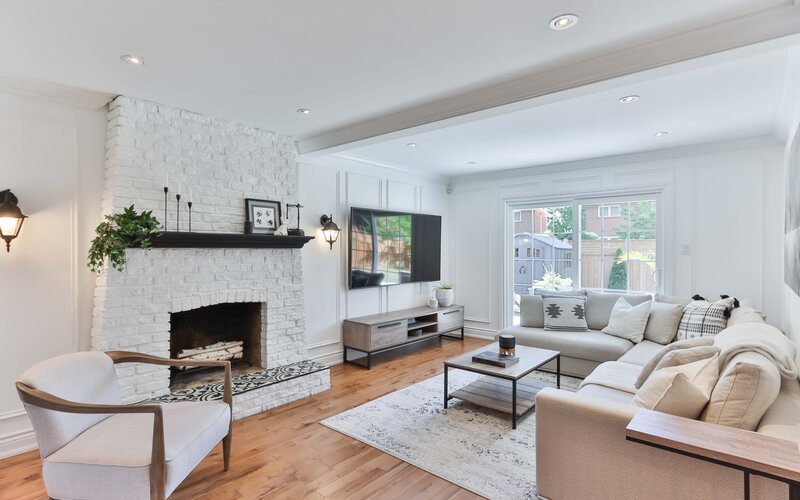Restrictions being lifted in many states has led to an increase in auctions as vendors rush to 'get the best price' before the anticipated cooling of the property market.
There are 4,354 auctions scheduled for auctions in the upcoming week - the first time scheduled auctions has surpassed 4,000 - according to CoreLogic's auction preview.
To prepare Australians for purchasing a property at auction, Arjun Paliwal, Founder and Head of Research at InvestorKit, provided his pre-game and on-the-day tips to ensure buyers have the 'best chance of winning' at auction.
"Those buying in markets like Brisbane, Adelaide and regional areas, where in the past haven’t been traditional auction markets, will see greater quantities of properties selling under the hammer due to improved vendor confidence," Mr Paliwal said.
"Many won’t be used to this style of buying nor the environment of heat. Those looking to buy will need to be open - and thoroughly prepared - with the idea of auction if they intend to buy in the next quarter, particularly for properties selling for $750K and above."
Mr Paliwal shared eight tips for increasing your chances of being successful at a property auction.
1. Shortlist several properties
"By nature, auctions are fast-paced and can be emotionally driven," Mr Paliwal said.
"To minimise getting swept up in the action and paying more than initially planned for, have a shortlist of several properties to fall back on so you have momentum - rather than just one."
He said that not having all your eggs in one basket means you're less likely to make a regretful over-purchase.
"You’re also less likely to start house hunting again from scratch," he said.
2. Monitor the most recent property sales
Mr Paliwal said looking at comparable sales - similar properties that have recently sold in the area - will give you a 'strong indication' of the property's market value.
"To ensure you have a realistic price guide on the day, continue researching right up until the auction," he said.
"This might include calling agents to get a guide on a recent sale or one under offer."
3. Compare 'apples with apples'
He said in doing the above due diligence, it's important to look into the specific details and features of a similar home.
"Ask yourself, are you comparing a property that might be flood- or bushfire-prone to another property in a suburb that might not be affected by this?" he said.
"Similarly, if the property you’re looking to buy has a pool or bus stop in front of it, ensure you compare properties with similar features as part of your research."
4. Set a cut-off range, not price
"As part of your prep work and strategy ahead of auction day, determine a cut-off price range that you’re willing to pay, rather than a specific maximum price," Mr Paliwal said.
He refers to the bottom of this range as 'fair value', while the top is your absolute non-negotiable.
"Think about this top price in your range as a reality check - if you pay anything above this, you will think it is overvalued and a purchase you will regret," he said.
5. Attend open homes and auctions
To understand market demand, Mr Paliwal said to visit open homes for private properties and auctions to get an idea of how much interest there is in the area.
"You’ll be better prepared and less surprised at the auction you plan to bid at," he said.
6. Follow trend reports
"CoreLogic and SQM Research provide an overview and analysis on the property market, along with recent trends on performance in various areas, suburbs and, sometimes, even streets," Mr Paliwal said.
"When doing your research, the key thing to look at is the guide on what a property might sell for based on this research, compared with what it ends up selling for on the day."
He said the percentage difference can provide you with a better price guide and ensure you're not blindsided by the 'realistic' sales price on auction day.
7. Consider placing a strong opening bid
To wipe out competition early, Mr Paliwal said making yourself known with a strong opening bid can be helpful.
"If you’re thinking of a starting bid and you're willing to go up to say $1.5 million on a property - and based on your research, you think this could be the end price - consider making an opening bid of $1.25 million+ to scare off competition," he said
"You’ll likely wipe out two-thirds of bidders who didn’t do their homework well."
8. Consider placing smaller bids to slow down the auction
If you're getting close to your cut-off price, it's possible to slow down and reduce auction heat by bidding in one, five, or ten thousand dollar increments, or using odd numbers.
"This can force the auctioneer and bidders to slow down and rethink the bid due to unexpected numbers," Mr Paliwal said.
"A pause can remove the heat and intensity and mean the price won’t rise as quickly."
Advertisement
Buying a home or looking to refinance? The table below features home loans with some of the lowest interest rates on the market for owner occupiers.
| Lender | Home Loan | Interest Rate | Comparison Rate* | Monthly Repayment | Repayment type | Rate Type | Offset | Redraw | Ongoing Fees | Upfront Fees | Max LVR | Lump Sum Repayment | Extra Repayments | Split Loan Option | Tags | Features | Link | Compare | Promoted Product | Disclosure |
|---|---|---|---|---|---|---|---|---|---|---|---|---|---|---|---|---|---|---|---|---|
5.54% p.a. | 5.58% p.a. | $2,852 | Principal & Interest | Variable | $0 | $530 | 90% |
| Promoted | Disclosure | ||||||||||
5.49% p.a. | 5.40% p.a. | $2,836 | Principal & Interest | Variable | $0 | $0 | 80% |
| Promoted | Disclosure | ||||||||||
5.64% p.a. | 5.89% p.a. | $2,883 | Principal & Interest | Variable | $250 | $250 | 60% |
| Promoted | Disclosure | ||||||||||
5.64% p.a. | 5.89% p.a. | $2,883 | Principal & Interest | Variable | $248 | $350 | 60% |
| Disclosure |
Image by qimono on Pixabay

Ready, Set, Buy!
Learn everything you need to know about buying property – from choosing the right property and home loan, to the purchasing process, tips to save money and more!
With bonus Q&A sheet and Crossword!







 Denise Raward
Denise Raward
 Harry O'Sullivan
Harry O'Sullivan


 Jacob Cocciolone
Jacob Cocciolone

